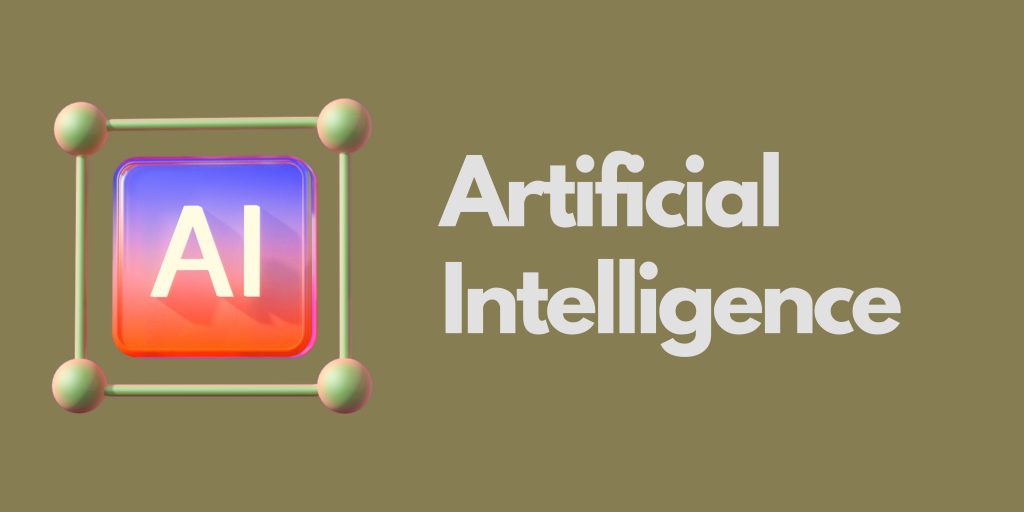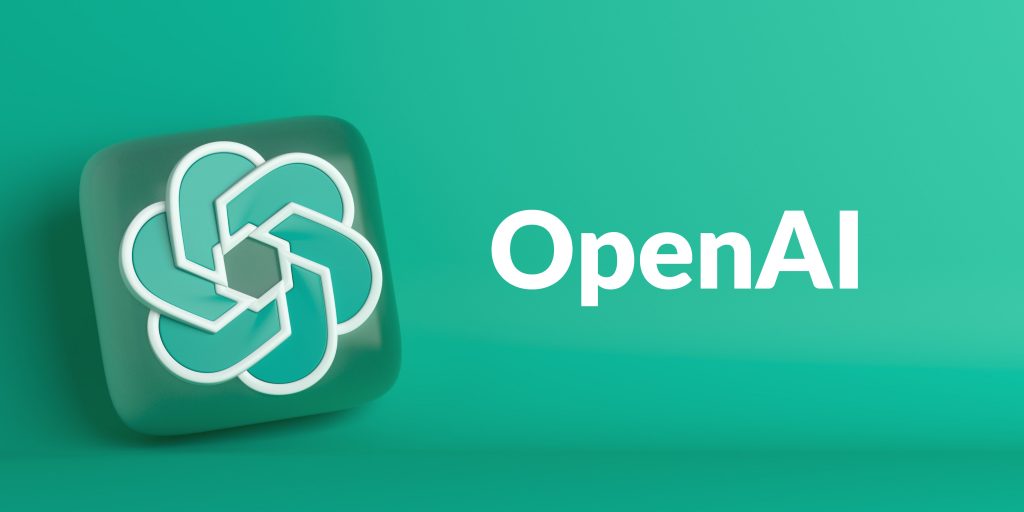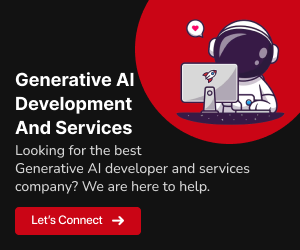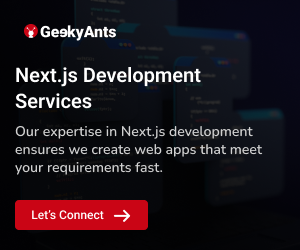In the ever-evolving landscape of technology, where change is not merely a constant but a catalyst, Artificial Intelligence (AI) and Machine Learning (ML) have emerged as formidable driving forces behind innovation. Their influence has permeated through various industries, reshaping paradigms and pushing the boundaries of what was once thought possible. From healthcare to finance, manufacturing to entertainment, AI and ML have been pivotal in ushering in a new era of possibilities.
In this era of digital transformation, the realm of web development stands as a testament to the transformative power of AI and ML. Within this dynamic ecosystem, one framework shines brightly: Next.js. Renowned for its flexibility, performance, and server-side rendering prowess, Next.js has rapidly risen to prominence as the go-to choice for crafting modern and user-centric web applications. Yet, what sets this framework apart is not just its inherent capabilities, but its seamless integration with the incredible potential of AI and Machine Learning.
In this blog post, we embark on a journey through the intertwined realms of Next.js, AI, and ML, exploring the profound impact this synergy has cast on the landscape of web development in the United States. From revolutionizing user experiences to optimizing application performance, we’ll delve deep into the ways in which AI and ML have redefined the boundaries of what can be achieved in Next.js app development.
As the dawn of this new technological frontier illuminates our path forward, it’s crucial to understand the multifaceted implications, the promises, and the challenges that arise at the nexus of Next.js, AI, and ML. So, fasten your seatbelts as we navigate through the ever-evolving crossroads of innovation, where code and cognition converge to shape the future of web applications in the USA.
Unveiling Artificial Intelligence

At its core, Artificial Intelligence refers to the simulation of human intelligence in machines, allowing them to think, reason, learn, and even perceive their environment. This transformative technology endeavors to replicate human-like cognitive processes, enabling computers to perform tasks that traditionally required human intelligence. By leveraging algorithms and vast amounts of data, AI systems can recognize patterns, make decisions, and continuously improve their performance without explicit programming.
AI can be broadly categorized into two types: Narrow or Weak AI, which is designed to perform a specific task, and General or Strong AI, which would possess human-level cognitive abilities. While General AI remains largely in the realm of science fiction, Narrow AI has made remarkable strides, permeating various aspects of our lives.
From voice assistants that understand and respond to our queries to recommendation systems that predict our preferences, AI is deeply ingrained in our daily experiences. It powers the self-driving cars navigating our roads and the fraud detection algorithms safeguarding our financial transactions. Even in the world of web development, AI has emerged as a powerful tool, transforming how we create, interact with, and optimize applications.
In the context of web development, AI’s capabilities have been harnessed to enhance user experiences, streamline processes, and enable data-driven decision-making. The synergy between AI and web development frameworks like Next.js holds the promise of reshaping the digital landscape as we know it. In the following sections, we’ll delve into the specific impact of AI and Machine Learning on Next.js app development in the USA, exploring their applications, benefits, and potential challenges. So, let’s embark on this exploration at the crossroads of code and cognition, where technology takes a leap into the future.
Evolution of Mobile App Development: A Triumph of Human Ingenuity

The journey of mobile app development is a remarkable tale that reflects the relentless spirit of human innovation. Starting from its modest beginnings during the nascent stages of technology, the landscape has transformed into the sophisticated realm we witness today. However, this evolution has not been devoid of challenges; developers have had to navigate through obstacles that seemed insurmountable at times.
From Humble Origins to Technological Marvels:
In the early days of mobile app development, the possibilities were limited by the technology available. Basic functionalities and minimal features characterized these pioneering apps. Developers worked with rudimentary tools and constrained resources, often pushing the boundaries of what was achievable with the available data.Navigating the Challenges of Limited Resources:
The initial stages of app development were marked by a scarcity of tools, resources, and data. Developers had to stretch their creative boundaries to craft functional applications using the limited technological means at their disposal. This scarcity amplified the complexity of the task, making the creation of even basic functional apps a formidable endeavor.Pioneering the Future: Infusion of AI into App Development –
The introduction of Artificial Intelligence (AI) into the realm of mobile app development marked a pivotal turning point. With AI-powered capabilities, challenges that once seemed insurmountable are now addressed more efficiently and effectively. One of the early challenges was optimizing app performance for various devices and platforms. The infusion of AI-driven algorithms has not only streamlined this process but has also revolutionized user experiences.AI’s Role in Enhancing User-Centric Design:
AI’s true prowess shines through its ability to analyze user behavior patterns. Developers can now gain comprehensive insights into how users interact with their applications. This invaluable data enables the creation of apps that are not just functional, but adapt to individual user preferences. This level of personalization has translated into improved user experiences and heightened engagement levels.A Paradigm Shift: Enhanced User Engagement –
The integration of AI has redefined how users interact with apps. AI-powered algorithms analyze user preferences and behaviors, enabling apps to predict user needs and provide tailored solutions. This personalized approach not only meets user expectations but often exceeds them, leading to increased user engagement and satisfaction.Looking Ahead: A Convergence of Innovation –
As AI continues to evolve, its integration with mobile app development promises even more transformative outcomes. The journey from overcoming the constraints of limited tools and resources to harnessing the power of AI reflects the tenacity of human ingenuity. This symbiotic relationship between technological advancement and creative problem-solving sets the stage for a future where the boundaries of app development are constantly pushed, leading to experiences that were once unimaginable. In this dynamic landscape, developers and businesses must remain agile, adapting to the constant changes driven by technology. By embracing AI’s potential, they can continue to create apps that not only address challenges but also reshape how users interact with technology, fostering a new era of innovation, user-centric design, and seamless experiences.
The Convergence of Next.js and AI/ML
Next.js, a React framework, has garnered significant attention for its versatility, performance, and server-side rendering capabilities. It has simplified the process of creating robust and interactive web applications. With the integration of AI and ML technologies, the potential of Next.js applications has expanded exponentially.
1. Enhanced User Experiences:
AI and ML algorithms are adept at understanding user behavior, preferences, and patterns. By leveraging this knowledge, developers can craft personalized experiences within Next.js apps. From suggesting relevant content to predicting user actions, the amalgamation of Next.js and AI/ML leads to seamless user interactions that adapt to individual needs.
2. Optimized Performance:
Performance optimization is a cornerstone of Next.js development. AI-powered algorithms can analyze application usage data and identify performance bottlenecks. This data-driven approach allows developers to proactively address issues and enhance the overall speed and responsiveness of Next.js apps.
AI’s Transformative Influence on Next.js App Development in the USA
Within the realm of Next.js app development in the USA, the integration of Artificial Intelligence (AI) and Machine Learning (ML) has sparked a revolution. These technologies have ushered in transformative changes that are reshaping the landscape of app creation and user experiences.
Harnessing the Power of Machine Learning:
Machine Learning algorithms, with their ability to process vast datasets, have emerged as a game-changer in Next.js app development. These algorithms meticulously analyze intricate patterns within data, enabling developers to gain deep insights into user preferences and behaviors. This newfound understanding empowers developers to anticipate user actions and tailor apps accordingly.User-Centric Design Takes Center Stage:
AI and ML have shifted the focus of app development toward user-centric design. By leveraging the insights provided by these technologies, developers can craft apps that align precisely with user preferences. This not only enhances the overall user experience but also fosters a strong sense of engagement. Apps become more intuitive and responsive, intuitively catering to users’ needs.Predictive Modeling: Shaping Personalized Experiences –
One of the most compelling outcomes of AI integration is the concept of predictive modeling. By analyzing historical user data, developers can forecast future user actions with remarkable accuracy. This ability to foresee user behavior paves the way for highly personalized app experiences. Users are presented with content, recommendations, and functionalities that align with their preferences, resulting in heightened satisfaction.Optimizing UI/UX: Enhancing Retention Rates –
Understanding user preferences extends beyond content recommendations. AI-powered insights allow developers to optimize app features, UI/UX design, and content delivery. This holistic approach to app development results in seamless, intuitive, and visually appealing interfaces that resonate with users. Consequently, user satisfaction levels surge, and the likelihood of users returning to the app increases substantially.A Glimpse into the Future: AI-Driven App Development –
The integration of AI and ML into Next.js app development has only scratched the surface of what’s possible. As these technologies continue to evolve, the potential to create even smarter apps with unparalleled user experiences grows exponentially. Developers stand at the brink of an era where apps can predict and cater to user needs before they’re even articulated, transforming digital interactions into truly personalized journeys.
Leveraging AI-Powered Tools and Frameworks

AI-powered tools and frameworks have emerged as indispensable aids for Next.js developers. These tools streamline various aspects of the development cycle, accelerating the process and improving efficiency.
Natural Language Processing (NLP):
AI-powered NLP tools assist in creating conversational interfaces and interactive features. Developers can integrate chatbots or voice assistants into Next.js apps, enhancing user engagement and accessibility.
Automated Testing:
AI-driven testing frameworks identify potential bugs and issues, enhancing the quality assurance process. This leads to more reliable and robust applications that provide seamless user experiences.Personalized Content Generation:
AI algorithms analyze user preferences and generate personalized content, from recommendations to tailored marketing messages. This level of personalization boosts user engagement and conversion rates.
Futuristic Vistas: AI’s Trailblazing Journey in Future Next.js App Development
The evolution of AI in Next.js app development is akin to a crescendo, with each phase hinting at a symphony of innovation and synergy yet to come. As AI technology relentlessly advances, it beckons us toward a future that promises to transcend the boundaries of possibility. This future landscape, driven by the fusion of AI and Next.js, holds the potential to reshape app experiences and redefine how we interact with technology.
Harmonious Convergence with Emerging Technologies:
The trajectory of AI in Next.js app development is bound to intersect with other groundbreaking technologies, including augmented reality (AR) and the Internet of Things (IoT). This convergence holds the key to unlocking a new dimension of app experiences ones that are deeply immersive, interconnected, and seamlessly blend the digital and physical realms. Imagine AR-powered apps that overlay dynamic information onto the real world or IoT-connected apps that respond intelligently to users’ surroundings. This integration augments user experiences, propelling app interactions beyond screens and into the fabric of everyday life.The Synergy of Real-Time Data and Adaptive Interfaces:
As AI technology advances, its role in Next.js app development is destined to expand beyond the boundaries of predictive modeling. Real-time data analysis will become a cornerstone, enabling apps to respond dynamically to changing user behaviors and environmental conditions. This real-time responsiveness will forge a deeper connection between apps and users, creating experiences that feel intuitive and anticipatory. Adaptive interfaces will emerge as the hallmark of future app experiences. These interfaces will evolve in tandem with users’ preferences and needs, offering tailored functionalities and content layouts. The result? App interfaces that feel like personalized extensions of users themselves, enhancing engagement and satisfaction.Dynamic Content Creation:
In the realm of future Next.js app development, AI’s capabilities will extend to dynamic content creation. Apps will evolve from static entities to living, breathing ecosystems that generate content on-the-fly based on user interactions and context. Imagine news apps that generate real-time summaries tailored to individual preferences, or e-commerce apps that curate product recommendations in response to changing trends. This dynamic content creation will blur the line between app and user, creating experiences that feel vibrant and perpetually relevant.Human Creativity Meets AI Efficiency:
The essence of this transformative journey lies in the seamless fusion of human creativity and AI-driven efficiency. Developers armed with advanced AI tools will be empowered to ideate, design, and innovate in ways previously unattainable. AI algorithms will complement human creativity, augmenting the ideation process, optimizing design decisions, and offering solutions that are driven by data-driven insights.Nurturing Future-Ready Mindsets:
The future of AI in Next.js app development calls upon developers and businesses to cultivate a forward-looking mindset. Staying abreast of AI’s evolution and its convergence with emerging technologies is paramount. This awareness equips stakeholders to harness the full potential of AI’s expanding role in app development effectively.
Embodied Innovation: Real-World Instances of AI-Powered Next.js Apps
The tangible impact of Artificial Intelligence (AI) on Next.js app development is vividly showcased through real-world applications spanning various sectors. These instances underscore the transformative potential of AI-powered Next.js apps, revolutionizing user experiences and redefining industries.
Health and Nutrition Apps – Navigating Personalized Wellness:
In the realm of health and nutrition, AI-driven algorithms stand as true allies. These intricate algorithms meticulously scrutinize users’ dietary preferences, health aspirations, and historical data. The result? Tailored meal plans and fitness routines that are as unique as the individuals they cater to. By offering actionable insights and personalized recommendations, these apps serve as virtual wellness companions, guiding users towards healthier lifestyles one personalized step at a time.Recommendation Mobile Apps
: AI’s prowess in enhancing user engagement finds a vivid embodiment in recommending mobile apps. These platforms harness AI’s analytical capabilities to decipher intricate user behaviors and preferences. The outcome is a curated selection of suggestions—be it products, services, or content—that resonate with individual tastes. This bespoke approach not only elevates user satisfaction but also fuels revenue, as users immerse themselves in an immersive realm of offerings perfectly aligned with their interests.Gaming – An Immersive AI-Powered Journey
The intersection of AI and Next.js within the gaming sector unveils an extraordinary journey of user engagement. AI-driven gaming experiences evolve dynamically in response to players’ decisions and actions. This dynamic adaptation leads to ever-evolving challenges that intricately cater to each player’s choices. The outcome is an unprecedented level of engagement that keeps users engrossed, ensuring that the gaming journey remains as captivating as the player’s imagination.E-Commerce – Customized Shopping Adventures:
In the world of e-commerce, AI-powered Next.js apps are shaping a tailored shopping landscape. AI algorithms scrutinize user behaviors and preferences, curating product suggestions that closely align with individual tastes. This personalized approach transcends the conventional online shopping experience, creating a sense of discovery and anticipation that drives user engagement and conversion rates.Financial Services – Personalized Financial Wellness:
AI’s transformative influence extends to the financial realm as well. AI-powered Next.js apps analyze user financial patterns and goals, offering personalized financial insights, investment strategies, and budgeting suggestions. This bespoke approach empowers users to make informed decisions, thereby enhancing their financial well-being.
Expanding Horizons: OpenAI’s Impact on Next.js App Development

OpenAI brings a new dimension to the realm of Next.js app development, ushering in a realm of advanced capabilities that amplify user experiences and creative possibilities. This infusion of innovation equips developers with an array of tools that redefine how apps are conceived, designed, and interacted with.
GPT-3 : Fostering Dynamic Interactions –
The power of natural language processing takes a monumental leap with GPT-3. Developers can harness its capabilities to enable dynamic and contextually relevant interactions within Next.js apps. This not only enhances user engagement but also opens doors to intuitive user interactions that mimic real-life conversations. Through GPT-3, apps become conversational companions, elevating the depth and quality of user experiences.DALL-E API: Unleashing Visual Creativity –
The DALL-E API introduces a groundbreaking approach to visual content creation. This API enables the generation of images from textual descriptions, essentially bringing words to life in the form of visuals. This functionality has profound implications for Next.js app development, allowing for the integration of imaginative and creative visual elements that captivate users. From vivid product representations to dynamic illustrations, DALL-E empowers developers to redefine visual storytelling.CLIP: Elevating Visual Intelligence –
CLIP’s exceptional ability to comprehend intricate visual concepts unlocks new avenues for app experiences. By seamlessly understanding complex visual data, CLIP paves the way for augmented reality (AR) and image recognition capabilities within Next.js apps. Users can interact with visual content in ways previously unattainable, while businesses can leverage CLIP to deliver content that resonates on a deeper level with their audience.Dynamic Synergy with Emerging Technologies –
OpenAI’s contribution goes beyond individual tools; it forges a dynamic synergy with emerging technologies. By seamlessly integrating AI and ML into Next.js, developers can explore the possibilities of augmented reality (AR), virtual reality (VR), and Internet of Things (IoT). This convergence amplifies user experiences, creating immersive interactions that seamlessly blend the digital and physical realms.Considerations for Ethical Utilization –
As developers embrace the potential of OpenAI tools, it’s imperative to consider ethical considerations. Data privacy, accuracy, and potential biases must be meticulously addressed. Responsible utilization of OpenAI tools ensures that the transformative potential of these technologies is harnessed without compromising the integrity of user experiences or infringing upon ethical boundaries.
Conclusion: Pioneering the Future of Next.js App Development with AI and Machine Learning
In the ever-evolving landscape of technology, the integration of Artificial Intelligence (AI) and Machine Learning (ML) with Next.js app development in the USA has brought about a new era of innovation and transformation. The journey from overcoming early challenges to embracing AI-driven predictive modeling exemplifies the remarkable potential of these technologies.
As AI and ML continue to advance, their impact on Next.js app development is set to grow even further, revolutionizing user experiences and optimizing performance. By recognizing the power of AI and ML, investing in skill development, considering ethical implications, and embracing innovation, developers and businesses can stay ahead of the curve. This dynamic synergy between human creativity and AI-driven efficiency will redefine app development, catering to the evolving needs of users in the digital age.
As we navigate this exciting frontier, staying attuned to AI’s progress remains crucial for harnessing its full potential, shaping the future of technology, and enhancing user experiences in unprecedented ways.
Related : Challenges Faced by next.js App Developers in the USA and How to Overcome Them
Looking to transform these insights into impactful results? Click here to unlock a new realm of possibilities. Your journey towards innovation begins with a single Click.
Frequently Asked Questions
What role does AI/ML play in shaping the future of Next.js app development in the USA?
AI/ML will drive personalized experiences, automate complex tasks, and enable predictive analytics, positioning Next.js apps for continuous growth and innovation.
What ethical considerations should be taken into account when using AI/ML in Next.js app development?
Ethical considerations include transparency in data usage, avoiding bias, protecting user privacy, and ensuring responsible deployment of AI/ML algorithms.
How can businesses and developers prepare for the impact of AI/ML on Next.js app development?
Businesses can invest in AI/ML expertise, ethics training, and innovation while developers should upskill and adapt to the evolving tech landscape.
Can you provide examples of AI-powered features in Next.js apps developed in the USA?
Sure, examples include personalized content recommendations, sentiment analysis, and real-time data processing, all of which enhance user engagement.
What challenges did developers initially face when integrating AI/ML with Next.js?
Early challenges included data integration complexities, algorithm selection, and understanding how AI/ML could complement Next.js’s architecture.
How does AI and Machine Learning influence Next.js app development in the USA?
AI and Machine Learning bring predictive modeling, enhanced user experiences, and optimized performance to Next.js apps, driving innovation in the USA’s tech landscape.


























